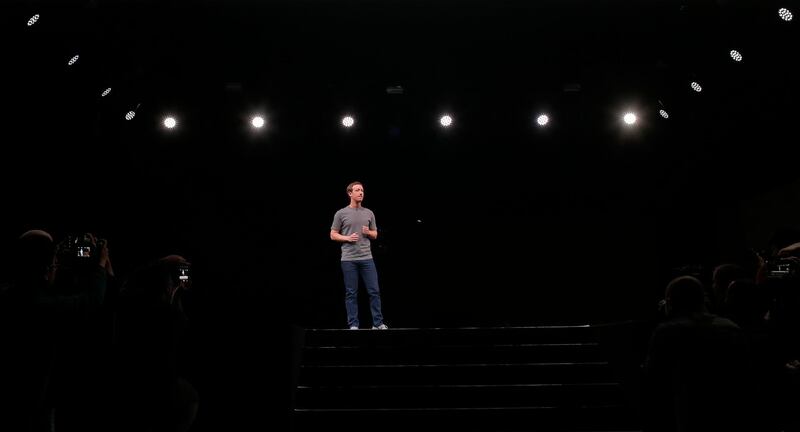With a swirling data protection scandal engulfing the social network, wiping an estimated $60 billion off its market value since the start of the week, Facebook's CEO Mark Zuckerberg finally broke his silence on Wednesday. He admitted the company had made "mistakes", vowed it would "step up" and acknowledged a "breach of trust" had occurred. He announced the platform would take action against "rogue apps", but insisted the loopholes revealed recently in a scandal involving British firm Cambridge Analytica had been closed years ago. Mr Zuckerberg's statement will not compensate for his company's cavalier attitude to user data. A former employee told British politicians that the company had a "wild west" approach and very few ways of discovering and acting on abuse. Although a movement to quit the network is swelling – ironically on Twitter – Facebook is relying on people ignoring the problem. They should not.
The latest outrage came after it emerged a professor was able to harvest the data of 50 million Facebook users with a personality quiz downloaded by just 270,000. When acquired by Cambridge Analytica, the data was allegedly used to assist Donald Trump's 2016 presidential campaign. It follows recriminations about the spread of fake news by Russian entities during the election as well as hate speech which exacerbated anti-Muslim violence in Sri Lanka and Myanmar this month. Alongside a handful of legal cases, Mr Zuckerberg is wanted for questioning by British and American politicians. He has offered to testify before the latter. Meanwhile the EU is proposing a digital levy designed to plug the taxation loopholes in which the company operates. Facebook has denied wrongdoing in the latest breach, though questions remain. If Facebook became aware of Cambridge Analytica's behaviour in 2015, why did it only ban it last week? And if Facebook was blind to the extraction of 50 million users' data, is the company not guilty of negligence?
Like his company, Mr Zuckerberg – who reportedly declined to face his employees on Tuesday – looks increasingly compromised. The original cornerstone of Facebook, an earnest if naïve vision to connect the world, appears to have succumbed to advertising revenue and data harvesting. Today it is open to exploitation by different entities to whom Facebook is always playing catch up. Many accepted long ago their transaction with Facebook: swapping data for a free and useful service. But its use to influence a major election seems to have crossed a line. The onus is now on users to stay informed and practice basic digital hygiene. Mr Zuckerberg is scrambling to appease his shareholders and pacify his cunsumers, acutely aware that the network effects that have built Facebook could just as quickly destroy it. To date, he has been effective in swallowing competitors like WhatsApp and Instagram. Ultimately, the company's first priority is self-preservation. And in a battle between its will to survive and user privacy, there will only ever be one winner.





